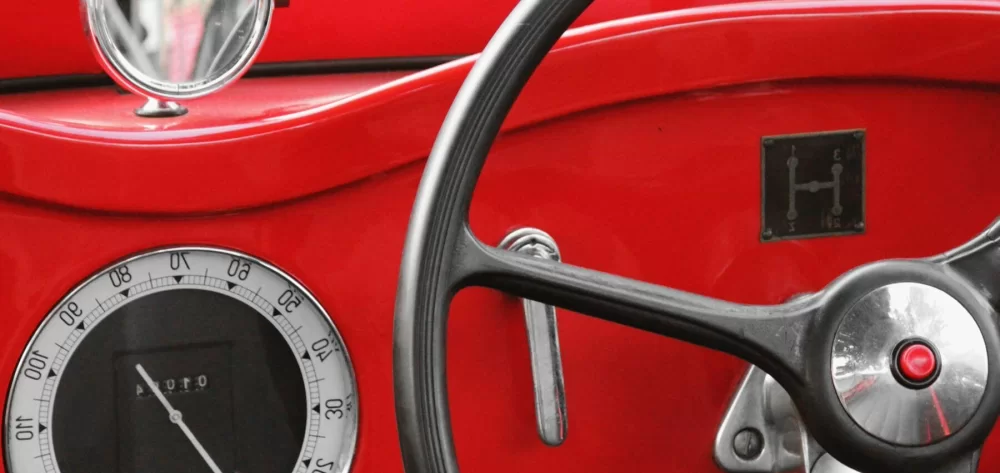Vintage is totally trending. Classic cars have become a favorite capital investment. Word of the almost unreal profits scored for sales of select classic models has gotten around. But it’s important to understand that these lucky breaks are few and far between. The fact is that classic cars are not a good fit for every investor.
Here are some tips that can help you understand whether or not they are a good fit for you.
- If you aren’t exactly a connoisseur, make sure you get to know everything there is to know about the automobile in question before you even seriously consider purchasing it. Online sources, journals and forums are good sources of information and are freely available. Fan clubs, auto dealers and experts are your best bet for solid information and educated opinions.
- Only buy high quality classic cars which are in impeccable condition. This rule always applies unless you can get an accurate quote for repair costs and factor these into the vehicle’s cost. Another exception may be if you are a qualified auto body technician with the time and equipment to properly restore a damaged vehicle.
- The rule of thumb for an accurate valuation of an automobile’s worth is supply and demand. The more rare a particular collectible car is, the more it is (or could be). This rule especially applies to automobiles that were produced in limited quantities.
- In recent years, the average value of classic cars has gone up year-on-year. Unfortunately there’s no guarantee that this trend will continue in the future. But if you are looking for a general reference point, indexes like the German Classic Car Index (DOX) can provide a guide to developments in the market. The DOX rose by 2.9 percent in 2020. In previous years, growth was sometimes stronger.
Table: German Classic Car Index (DOX), 2010 to 2020
| Year |
Points |
Change |
| 2020 |
2770 |
+2.97% |
| 2019 |
2690 |
+1.70% |
| 2018 |
2645 |
+1.38% |
| 2017 |
2609 |
+2.23% |
| 2016 |
2552 |
+1.43% |
| 2015 |
2516 |
+4.27% |
| 2014 |
2413 |
+5.60% |
| 2013 |
2285 |
+4.53% |
| 2012 |
2186 |
+8.06% |
| 2011 |
2023 |
+4.22% |
| 2010 |
1941 |
+9.29% |
Source: Verband der Automobilindustrie
- A classic car is a long-term investment similar to a private home. The capital you invest in a classic car will usually be tied up for some time. While you can’t completely rule out the chance of a quick sale at a profit, it would certainly be the exception to the rule.
- Rule of thumb: Classic car investments under 20,000 francs are rarely worth it, because the rate at which the car gains in value may not even cover your maintenance and storage costs. A rough estimation shows that if you were to own a vehicle valued at 70,000 francs and had average associated expenses, the value of that automobile would have to increase by 4 percent per annum just to break even. In the best case, you will need to invest in a classic car valued at around 50,000 francs before you can even think of it as an investment.
- Not all brands of automobiles make worthwhile investments. Ferrari collectors' items, for example, are particularly favoured. Eight of the ten most expensive cars sold at auction are Ferraris. The highest price so far was achieved by a Ferrari 250 GTO for more than 48 million dollars at an auction in 2018. But German (especially Mercedes) and British luxury cars (especially Aston Martin) can also achieve high prices. For investors, however, there is always the question of what price they bought the car for: High prices do not automatically mean high returns.
- The classic car market is, much like the art market, anything but rational. A car with a special history, for example, may command a higher price than an identical vehicle without that history. In the event that a vehicle’s original owner was a world famous personality, this will likely have a positive influence on the car’s value. In some cases the hype surrounding the former owner of a car might even affect the sale price more than its make and model.
- Many investors cannot afford to buy a classic car themselves. If you still want to invest in classic cars, classic car funds offer an alternative to going at the vintage auto market on your own. Just note that these funds often come with high fees which can erode your profits.
- Some investors look at the purchase of a classic car as a way to diversify their assets. However, due to the high risk element associated with classic car investments, these should only make up a limited part of your investment portfolio.
- Even if you do your due diligence, the purchase of a classic car is still a risky investment based primarily on speculation. If you look at a classic car solely as an investment, you may end up getting the short end of the stick. The market is, by its very nature, volatile and unstable. A better option is to look at classic cars as an object of passion, rather than an investment. If you enjoy owning a car, then you win regardless of whether or not it increases in value.
More information:
Trading fees compared
Private banking in Switzerland
How to buy stocks: best trading tips

 Deal of the Day
Deal of the Day 












